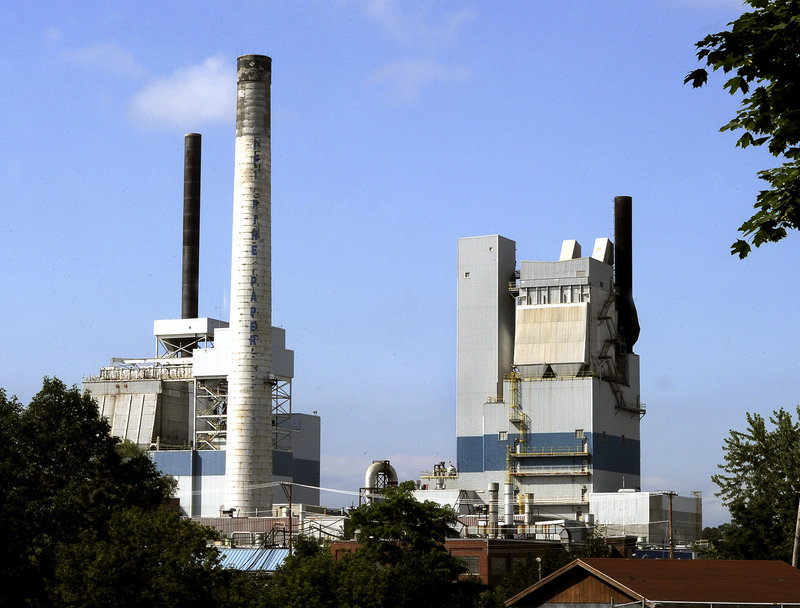AUGUSTA – We should be celebrating the fact that Maine’s air is clean and healthy, and not playing politics with the Department of Environmental Protection’s proposed waiver to the state implementation plan regarding Ozone Transport Region, New Source Review Requirements.
This is an opportunity for the state to encourage economic development and still meet the federal government’s strict air standards for new or expanded sources of volatile organic compounds or nitrogen oxides. The Clean Air Act has provisions for states like Maine that are in attainment (of the standards) to make changes to their rules that are more appropriate while still protecting the environment and public health.
We worked closely with the federal Environmental Protection Agency on how Maine might make these changes, and followed its guidance on how to inform the public, which was to have a 30-day public comment period. Allegations have been made that we tried to keep these changes hidden or secret, when in fact just the opposite is true.
The DEP values transparency, which is why we placed a public notice on “Opportunities for Comment,” a centralized Web page with a direct link from our home page. Prior to this Web page, notifications were scattered around the hundreds of DEP Web pages or not posted at all.
Frankly, we have made it easier than ever before for the public to comment on proposed changes. Additionally, a notice ran in the June 29 edition of the Kennebec Journal.
We strongly support the opportunity for a public hearing so that more of the technical justifications for these changes can be understood by the public, and we will be hosting one at 1 p.m. Sept. 10 in Augusta.
We value our clean air and public health, and we have several technical and scientific models that prove that additional reductions in nitrogen oxides and volatile organic compounds would not have an impact on ozone levels in Maine, and demonstrate that there would be no adverse effect on other states in the Ozone Transport Region, a 13-state agreement to help reduce pollution.
The accusation that this is a “race to the bottom” and would put polluters ahead of public health and air quality is simply not true. If the waiver is granted, facilities must still apply federal best available control technology emission standards to new sources and modified units; in other words, state-of-the-art controls and monitoring systems.
The 63 major sources and 220 synthetic minor sources in this state are well controlled and will continue to have to meet strict standards should this waiver be approved by the EPA.
It’s frustrating that this issue is politicized when similar requests have been made by prior administrations without any controversy. In 1995, the EPA granted a waiver from nitrogen oxide standards in the areas of the state that were in attainment for ozone. In 2006, the EPA also granted a similar waiver for the state.
Our proposal is similar, except today the entire state has remained in attainment for ozone for nine years and it includes a waiver for volatile organic compounds. Rather than scoring political points, we are working with the EPA and ensuring that Maine remains in attainment and not burdened with unnecessary regulations for states in nonattainment.
The Clean Air Act requires that Maine be part of the Ozone Transport Region, and any changes must demonstrate that the increase would not significantly contribute to the ozone levels in any Ozone Transport Region state.
Statements made by opponents that this waiver will effectively void the Ozone Transport Region and that other states will drop out are false. Massachusetts and New York are not going to drop out because they do not meet federal air quality standards.
It’s healthier here in Maine. Our industries are installing state-of-the-art pollution controls, and they work hard to meet a myriad of regulatory requirements under the Clean Air Act and Maine’s laws, which also restrict levels of all types of pollutants.
It’s time to start looking at the facts, rather than making false allegations, so we can move our economy forward while protecting the environment and natural resources.
We can protect Maine’s clean and healthy environment and have a robust and sustainable economy at the same time. Balancing the two means our environment and our economy prosper, ensuring Maine is the way life should be.
Patricia Aho is commissioner of the Maine Department of Environmental Protection.
Send questions/comments to the editors.



Success. Please wait for the page to reload. If the page does not reload within 5 seconds, please refresh the page.
Enter your email and password to access comments.
Hi, to comment on stories you must . This profile is in addition to your subscription and website login.
Already have a commenting profile? .
Invalid username/password.
Please check your email to confirm and complete your registration.
Only subscribers are eligible to post comments. Please subscribe or login first for digital access. Here’s why.
Use the form below to reset your password. When you've submitted your account email, we will send an email with a reset code.